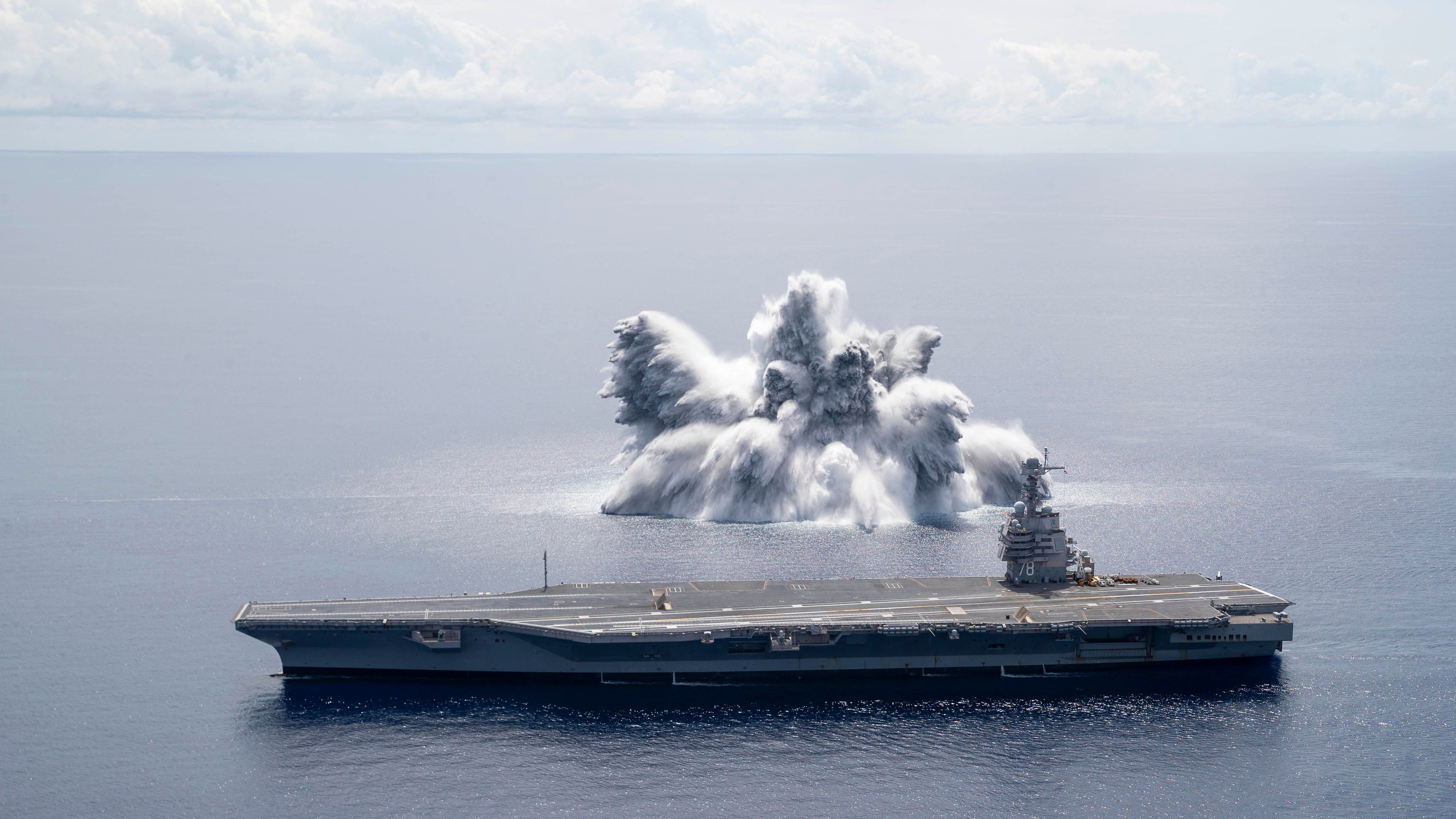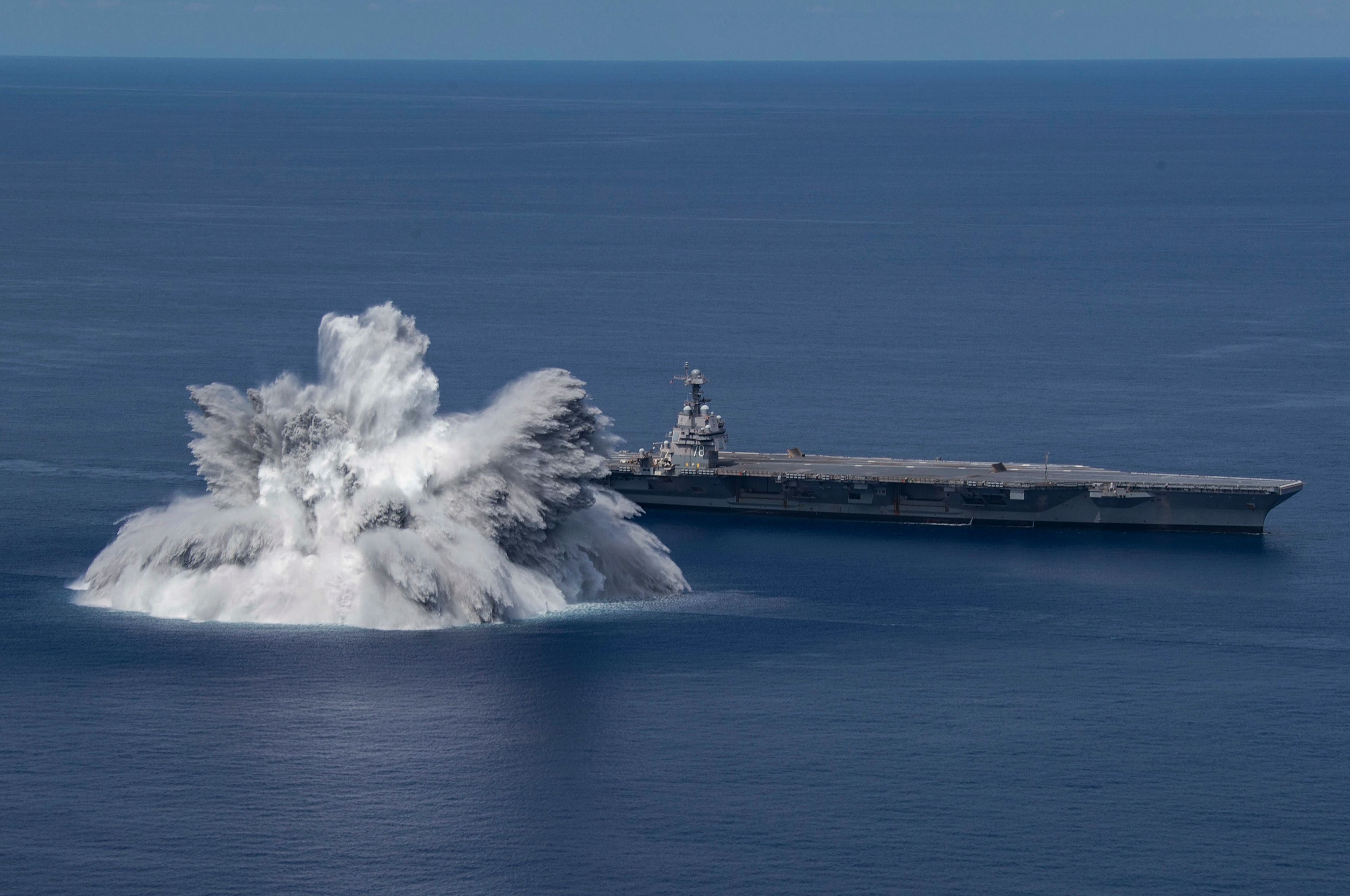Watch US Navy trial causing earthquake after blasting 18 tonnes of explosives in Atlantic
The shock trial was executed first in 34 years on nuclear-powered carrier

Your support helps us to tell the story
From reproductive rights to climate change to Big Tech, The Independent is on the ground when the story is developing. Whether it's investigating the financials of Elon Musk's pro-Trump PAC or producing our latest documentary, 'The A Word', which shines a light on the American women fighting for reproductive rights, we know how important it is to parse out the facts from the messaging.
At such a critical moment in US history, we need reporters on the ground. Your donation allows us to keep sending journalists to speak to both sides of the story.
The Independent is trusted by Americans across the entire political spectrum. And unlike many other quality news outlets, we choose not to lock Americans out of our reporting and analysis with paywalls. We believe quality journalism should be available to everyone, paid for by those who can afford it.
Your support makes all the difference.US Navy have released videos of a shock trial it conducted on its newest aircraft carrier USS Gerald R Ford on Friday, which triggered a 3.9 magnitude earthquake at sea.
The "full ship shock trial" (FSST) was conducted by detonating about 18 tonnes (40,000 pounds) of explosives within metres of the ship sailing in the Atlantic, according to a statement.
It was the first of the three scheduled in-water blasts by the navy, kicking off the full ship shock trials on the nuclear-powered carrier to determine whether it can withstand an enemy hit during combat.
The US Geological Survey recorded the powerful blast with a 3.9 magnitude earthquake about 100 miles off the Florida coast at 4pm on Friday, according to USNI news.
The footage of the trial showed gigantic bursts of water erupting from the ocean as thousands of pounds of explosives were detonated near the carrier. The super carrier remained unscathed by the powerful blast as the navy called it a “successful” trial.
The navy said in the statement that the trials are being conducted “within a narrow schedule that complies with environmental mitigation requirements, respecting known migration patterns of marine life in the test area.”
“The first-in-class aircraft carrier was designed using advanced computer modelling methods, testing, and analysis to ensure the ship is hardened to withstand battle conditions, and these shock trials provide data used in validating the shock hardness of the ship,” it added.
After completion of FSST later this summer, the carrier will enter "planned incremental availability for six months of modernisation, maintenance, and repairs" before its maiden deployment.

The carrier is 333m long, 77m high and has a displacement of 100,000 tonnes full load while comprising two nuclear reactors and four shafts.
The full ship shock trials were executed first time on an aircraft carrier in 34 years, according to US Navy, since the shock trial on USS Theodore Roosevelt (CVN 71) in 1987. This was also the first FSST on any class of ship since 2016.
Join our commenting forum
Join thought-provoking conversations, follow other Independent readers and see their replies
Comments